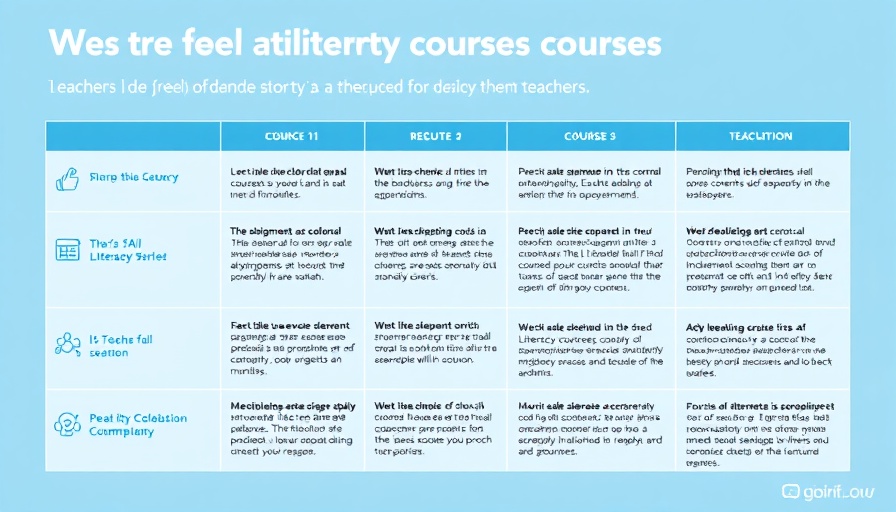
The Imperative of AI Literacy for Educators
As the landscape of education continues to evolve, the integration of artificial intelligence (AI) into the classroom is becoming increasingly crucial. This is not just a trend; it's a fundamental shift that teachers must embrace to prepare students for a future dominated by technology. Despite the potential concerns surrounding AI's influence on critical thinking and problem-solving skills, it is imperative that educators prioritize their own understanding of AI. They must first become literate in the technology before they can effectively teach their students to use it responsibly.
Empowering Educators through Free AI Literacy Resources
The transition to an AI-enhanced educational system does not have to be daunting. Resources such as free AI literacy courses from Stanford University provide educators with the critical knowledge necessary to facilitate this integration. These courses offer insights into AI's role in generating misinformation, fact-checking AI results, and mitigating biases in AI design. Each module is designed to ensure that teachers are equipped not only to understand AI technologies but also to instill this understanding in their students.
Building an AI-Receptive Teaching Environment
Creating a curriculum that incorporates AI literacy can fundamentally change how students interact with information and technology. For instance, the module "AI or Not AI?" encourages critical thinking by challenging students to categorize technologies that they encounter daily. This approach fosters an environment where students learn to evaluate their digital interactions thoughtfully. The goal is to mold learners who are not only consumers of information but also critical analyzers of the tools they use.
Addressing Common Concerns about AI in Education
Many educators express hesitation towards incorporating AI due to concerns about dependency on the technology. Discussions around AI's influence on cognitive development are essential; however, these conversations need to shift towards how educators can utilize AI to enhance learning rather than view it as a potential crutch. By addressing these concerns with data and real-world examples, teachers can shift the narrative to embrace AI's role in supporting educational goals.
Future Recommendations: Continuing the AI Literacy Journey
As educators advance in their understanding of AI, attending workshops and collaborating with peers in professional development sessions becomes vital. Programs such as the upcoming webinars hosted by Common Sense Education focus on providing practical strategies for integrating AI into educational frameworks, ensuring that teachers can keep pace with this rapidly evolving landscape. Continuous professional development in AI literacy is crucial for fostering an informed teaching workforce that can navigate the complexities of AI.
This is Just the Beginning
The integration of AI into classrooms is no longer optional; it is a necessity for fostering a generation of tech-savvy learners. Educators are encouraged to harness free resources to elevate their AI literacy, ensuring they can guide their students through this digital transformation. With the right tools and training, teachers can transform apprehension into innovation, ultimately enhancing the educational experience for all.
 Add Row
Add Row  Add
Add 




 Add Row
Add Row  Add
Add 

Write A Comment